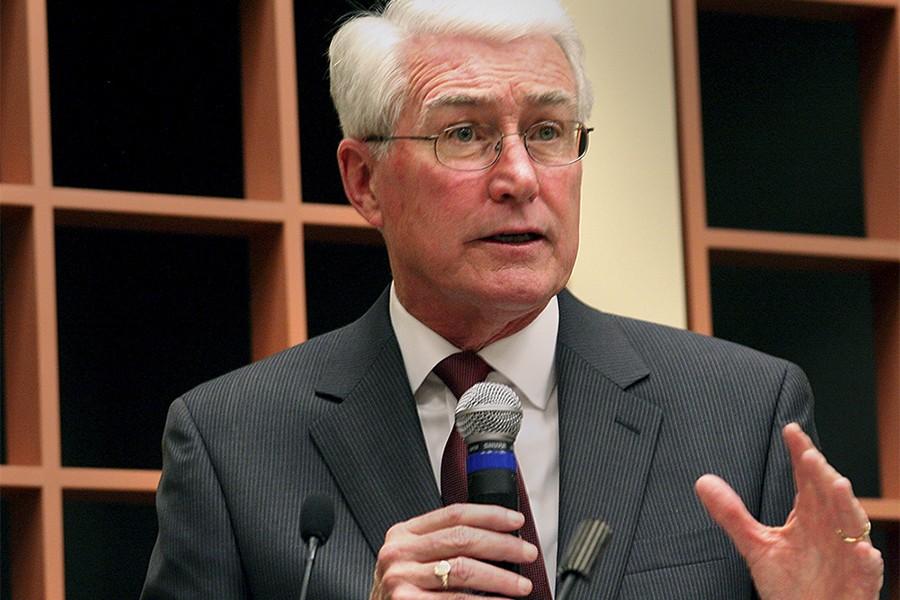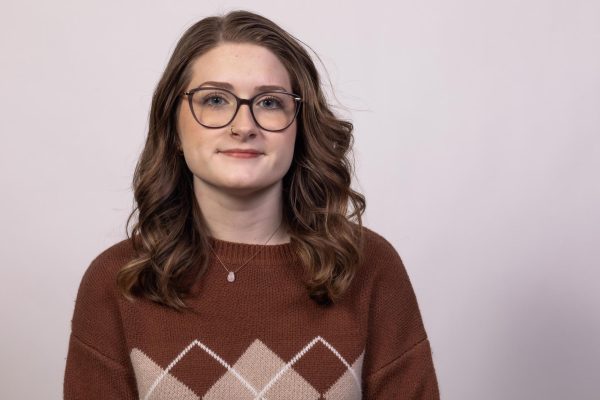
A greener Earth starts here at Eastern, with the help of The Academy of Lifelong Learning, food scraps and a lot of worms.
The Academy held a ‘Vermicomposting 101’ event on Friday in Buzzard Hall, which directed participants through the process of making their own compost bin.
Lauren Spaniol, resource conservationist at the Coles County Soil and Water District, led the event by presenting a presentation on the benefits of worm composting, as well as how to do it properly.
“Composting helps reduce food waste, you know those materials that would otherwise go to a landfill, wind up being used for something productive and in doing so, they can help reduce greenhouse gas emissions as well,” Spaniol said. “A lot of people don’t think about it, but when you waste something like an apple, let’s say in your fridge, that you don’t eat, it’s not just that apple. That apple probably wasn’t grown locally. Let’s say it was grown in Michigan. So, in addition to the physical apple that’s going to waste, the carbon that was used to haul that apple here from Michigan goes to waste, the processing energy that went into that, the water that went into that, it all goes to waste as well.”
The six participants at the event were required to pay $60 to attend the event, to cover the supplies.
Everyone was given a plastic storage bin, shreds of office paper and about a pound of red wiggler worms.
Daniel Douglas, the program coordinator at The Academy, said in the future, he would like to find a way to reduce the cost of this event, but the worms that they purchased cost $350.
“To be honest with you, if I do have worms left over and it’s enough to spread the love, I am open to that idea, because that’s the biggest cost factor as far as everything else,” Douglas said. “That 350 bucks for worms, that’s a lot! But, if they continue to reproduce and I have enough to host this event again, that’d be awesome.”
Each attendee was also asked to bring a drill from home to the event, to drill several tiny holes into their bins, to allow the worms and compost to get oxygen.
Spaniol helped everyone drill these holes and fill their bins accordingly.
She informed the attendees that each bin should contain about two to four parts of “brown materials” per each one part of “green materials.”
Browns are materials that provide carbon. They act as a food source for the worms and other decomposers, as they break down the waste.
Spaniol stated that common browns that can be added to a compost pile are paper, dead leaves, twigs and branches.
Greens provide nitrogen to the bins. They include food scraps, coffee grounds and grass clippings.
Spaniol encourages everyone to check out the several wonderful sources that are available online regarding how to create a compost bin, such as The Spruce.
Although this is the first vermicomposting event that The Academy has held at Eastern, Douglas and Spaniol hope to continue the event in the future.
Douglas said that if Eastern’s community has an interest in learning about vermicomposting or becoming more environmentally friendly, they should reach out to The Academy, so they get another event planned.
Even if vermicomposting is not your cup of tea, The Academy hosts a variety of events.
In the beginning to middle of December, their pre program guide will be released.
He said, “Before that, I’m gonna have a lot of kind of tidbits that will come out on our Facebook page. That’s facebook.com/EIUacademy.”
The Academy will also be having an open house on Jan. 5, 2024 to give the community an opportunity to tour their office, eat cheese and crackers and socialize with others.
Audra Gullquist can be reached at 581-2812 or at agullquist@eiu.edu.


































































